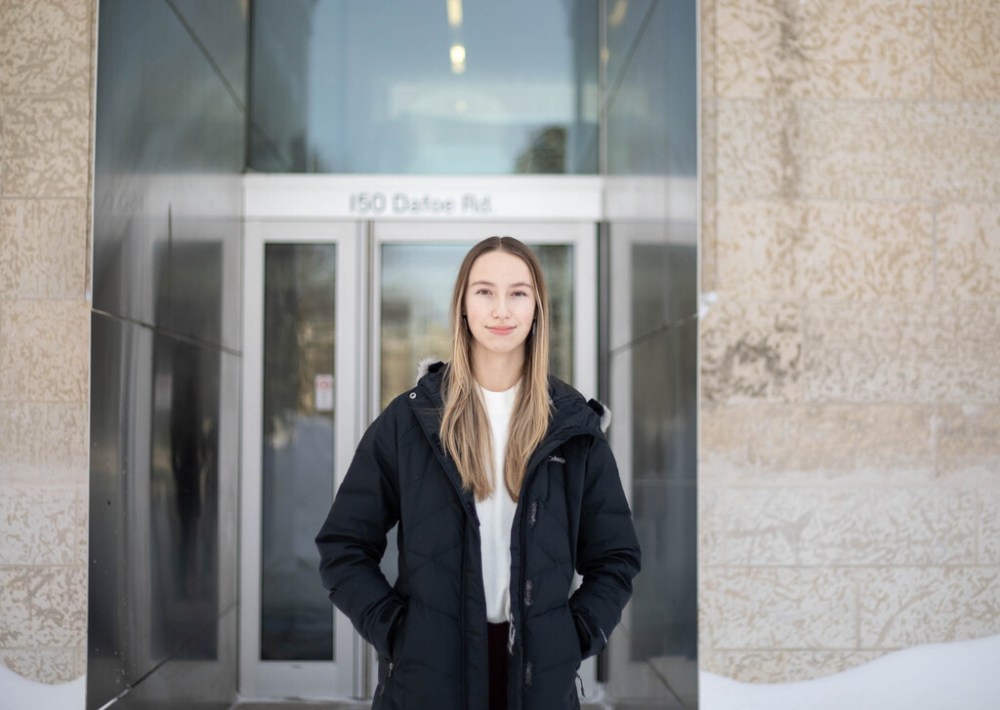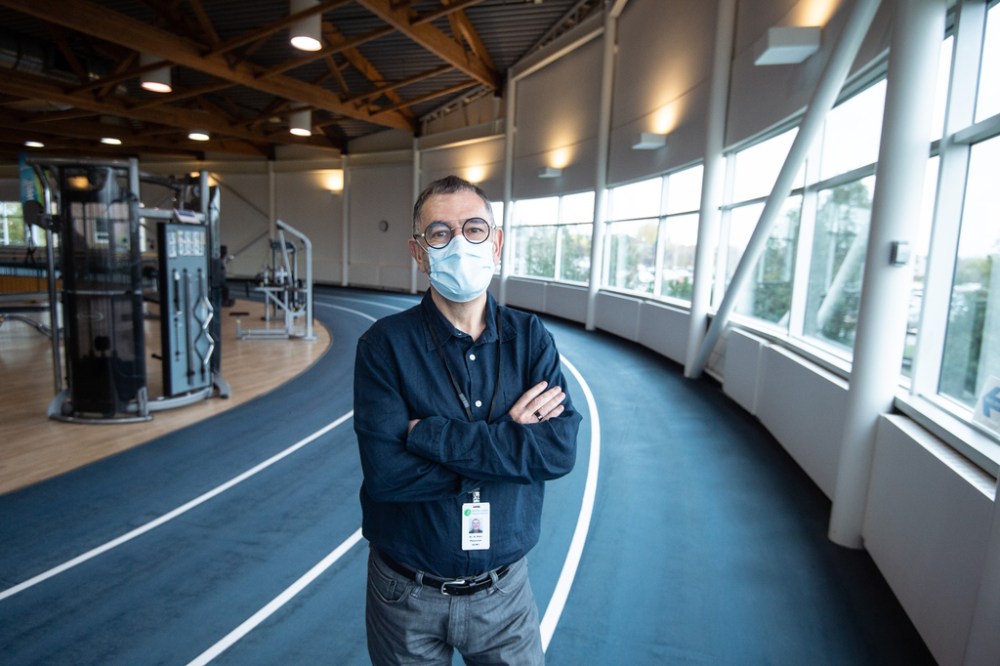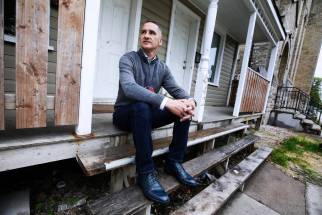Lost, distorted senses on rise in wake of COVID ‘Nothing tastes as good as it used to'
Read this article for free:
or
Already have an account? Log in here »
To continue reading, please subscribe:
Monthly Digital Subscription
$0 for the first 4 weeks*
- Enjoy unlimited reading on winnipegfreepress.com
- Read the E-Edition, our digital replica newspaper
- Access News Break, our award-winning app
- Play interactive puzzles
*No charge for 4 weeks then price increases to the regular rate of $19.00 plus GST every four weeks. Offer available to new and qualified returning subscribers only. Cancel any time.
Monthly Digital Subscription
$4.75/week*
- Enjoy unlimited reading on winnipegfreepress.com
- Read the E-Edition, our digital replica newspaper
- Access News Break, our award-winning app
- Play interactive puzzles
*Billed as $19 plus GST every four weeks. Cancel any time.
To continue reading, please subscribe:
Add Free Press access to your Brandon Sun subscription for only an additional
$1 for the first 4 weeks*
*Your next subscription payment will increase by $1.00 and you will be charged $16.99 plus GST for four weeks. After four weeks, your payment will increase to $23.99 plus GST every four weeks.
Read unlimited articles for free today:
or
Already have an account? Log in here »
Hey there, time traveller!
This article was published 18/02/2022 (1394 days ago), so information in it may no longer be current.
A few weeks after his smell and taste returned following a bout with COVID-19, Barrette Plett realized the senses had gone haywire again one morning when cooking breakfast.
The first egg on his plate tasted rotten. So did the second. His wife tried one from the same carton, but it tasted like an egg to her.
It was the culmination of a week when everything began to have the same revolting taste or smell only he could detect.
“It was a combination of mustard, dirt and poop,” said Plett, a school counsellor from Tinker Creek, south of Morden. “It’s awful. I wouldn’t want this to happen to anyone.”

A quick internet search led Plett to post-COVID parosmia — a bizarre and extremely disruptive condition where normal scents become distorted and unpleasant. It also disrupts taste.
Normal smells are replaced by horrible stenches, such as sewage, garbage, rotten meat or cigarette smoke, after olfactory nerves are damaged by a viral infection or head injury.
Few people had heard of parosmia before the pandemic, but the number of cases linked to COVID-19 infection has since exploded.
With no cure or reliable treatments, sufferers can only wait and hope for the best while coping with the physical and mental tolls. It can take a year or two for a person’s smell and taste to go back to normal. For a few, it doesn’t happen at all.
Plett, 44, is still dealing with parosmia almost a year after his senses became warped, though it isn’t intense as the beginning, in March 2021.
Long-haulers find comfort in support group
Posted:
For the first time in Manitoba, a virtual COVID-19 support group is giving long-haulers a chance to share their experiences with each other.
His frustrating journey began when he contracted COVID in November 2020, and temporarily lost his ability to taste and smell.
“I was so desperate for smell, one day I took off my shoe and was hoping to get something but there was nothing,” he said.
The senses returned after Plett recovered from the virus. Within weeks, however, everything smelled or tasted bad.
In those early days, the odour was so terrible and overwhelming he thought something had died inside his house.
“It was like standing in an outhouse,” he said.
Plett has had to figure out which foods he can tolerate, even with a hint of the repulsive taste. He feels anxious when he’s invited into someone’s home, in case the distorted smell is so strong he has to flee.
At a recent family gathering, he had to sit apart from relatives who were eating a pizza with onions on it.
“I can still imagine in my head what a delicious slice of pizza tastes like, and then I try it and it tastes gross,” he said.

Desperate to enjoy food again, Plett’s condition seems to be improving — he can handle chicken and beans again — but onions still carry a putrid smell.
It’s been a similar ordeal for University of Manitoba music student Gabrielle Gagnon, who couldn’t smell or taste anything after catching COVID-19 in November 2020.
Both senses returned following her recovery, but she began noticing strange odours in January 2021.
“I didn’t know what it was at first. It just smelled gross, like chemically or sometimes like body odour or an armpit,” said the 23-year-old from Lorette.
Cravings for her favourite foods usually result in disappointment.
“Nothing tastes as good as it used to,” said Gagnon. “At home, you can avoid it. Once you go out, there’s no control over it. It has made going out for food difficult.”
She avoids foods that trigger the most intense smells: onions still make her gag, and she can’t stomach eggs, chicken, turkey or roasted red peppers.
Gagnon’s physical health has suffered. She has lost weight, her appetite has waned and energy level has dropped.
Despite it all, she is thankful she doesn’t have more severe long-COVID symptoms.

Gagnon and Plett haven’t sought referrals to a specialist. For now, they are waiting and hoping their senses return to normal.
Before the pandemic, Dr. Kristine Smith, a rhinologist and skull base surgeon at Health Sciences Centre in Winnipeg, would see about one parosmia patient a month. She now sees at least one a week, with many cases linked to coronavirus.
A person’s nose has about 400 scent receptors which affect both smell and taste. Receptors, or nerves, fail to activate if they are damaged, resulting in abnormal scents, said Smith.
“Once you have parosmia, it is hard to go away. It does get better over time,” she said.
Olfactory dysfunction can lead to depression or anxiety. Some patients require counselling.
“This is a loss patients need to grieve,” said Smith.
Smell disorders can also put people in danger if there is an emergency and they are unable to detect smoke or natural gas fumes.
People who develop parosmia should speak to their family doctor, said Smith. They could be referred to an ear, nose and throat specialist.
Before seeing her, some of Smith’s patients felt their concerns were dismissed. Others were told their symptoms were all “in their head.”
“This is definitely real,” the doctor said.

Smell training, salt water rinses and nasal steroid sprays can help to support recovery. Research is underway to develop potential treatments or cure.
In Manitoba, Plett and Gagnon were unable to find a support network for people with parosmia.
Through his research, Plett discovered AbScent, a British smell-loss charity whose online has grown by the thousands during the pandemic.
The group has been helping many Canadians who’ve developed post-COVID parosmia, said founder Chris Kelly, who temporarily lost her sense of smell after contracting a virus in 2012.
Kelly said parosmia occurs most frequently during the recovery phase of smell loss.
“A hypothesis is that the regenerating olfactory system is sending an aberrant signal to the parts of the brain that interpret smell messages,” she said. “The onset of post-COVID parosmia varies considerably, and can start sometimes as late as five months after the virus. This can be confusing for the patient, who might think they have another case of COVID.”
Ninety per cent of cases resolve within a couple of months, while some go on for two years, she said. “It’s rare for people not to regain at least some of their sense of smell, but it can happen.”
Parosmia doesn’t just affect a person’s relationship with food, it can also disrupt sex lives.
“The distortions colour other areas of a person’s life. Intimacy is one important area,” said Kelly. “No body smells, whether your own or someone else’s, are the same — and always they are repugnant.”
A team of University of Manitoba researchers is studying the effects of long COVID. Parosmia is included in the study, said study lead Dr. Alan Katz, director of the Manitoba Centre for Health Policy.
chris.kitching@freepress.mb.ca
Twitter: @chriskitching
As a general assignment reporter, Chris covers a little bit of everything for the Free Press.
Our newsroom depends on a growing audience of readers to power our journalism. If you are not a paid reader, please consider becoming a subscriber.
Our newsroom depends on its audience of readers to power our journalism. Thank you for your support.










